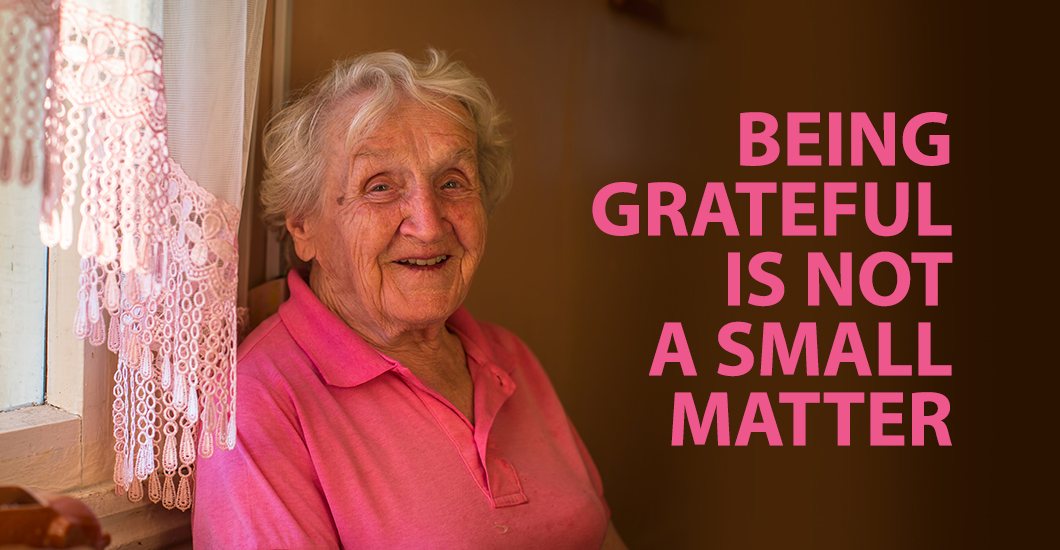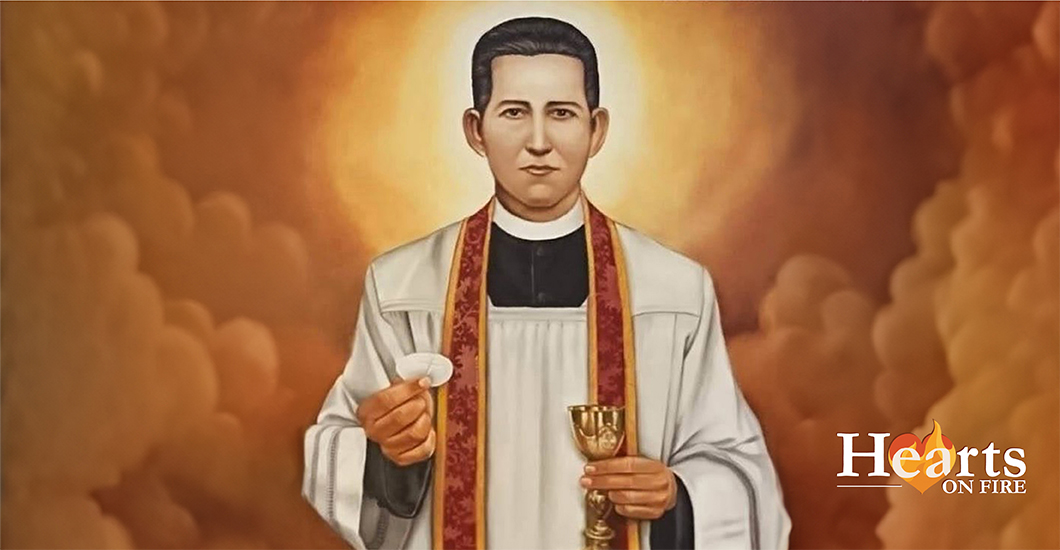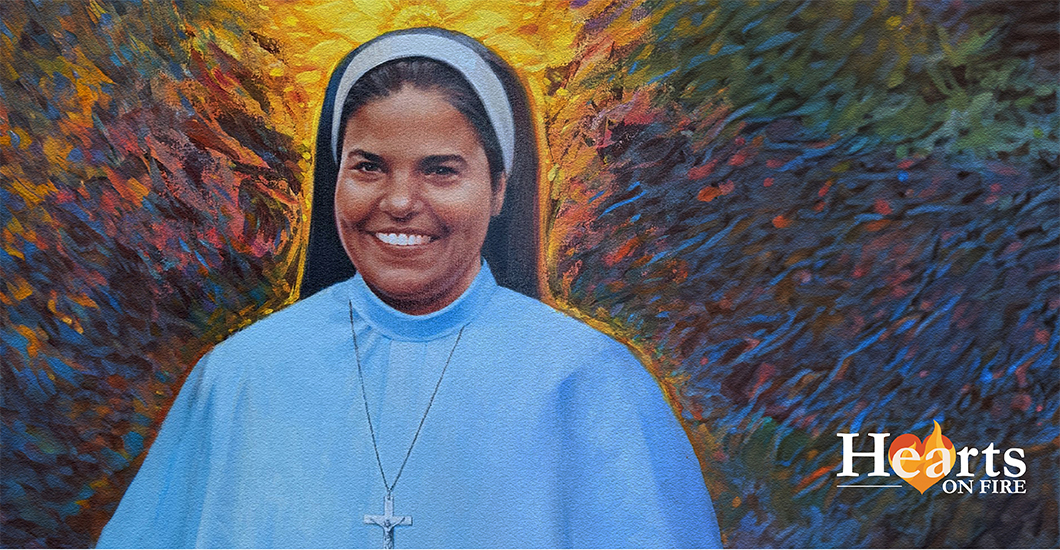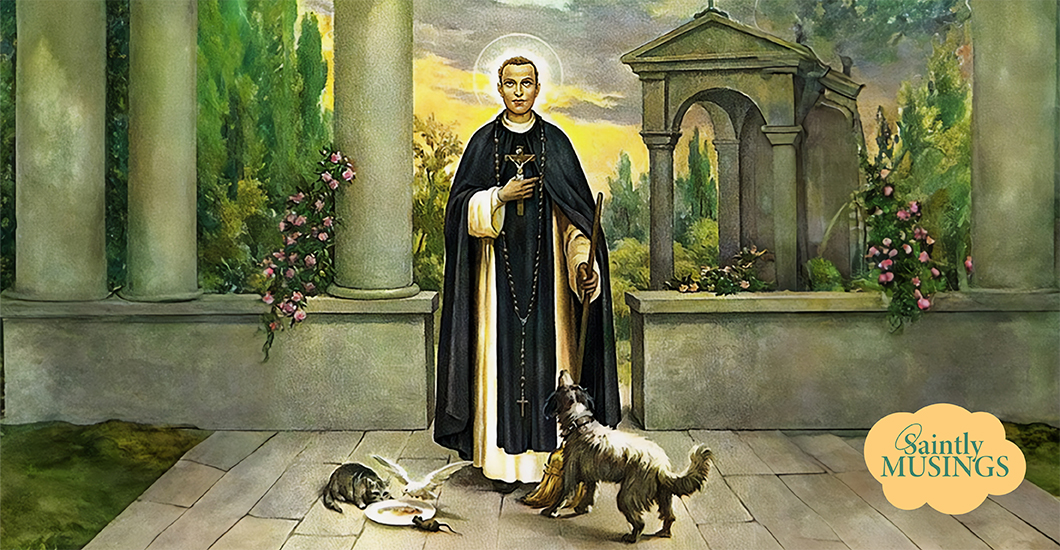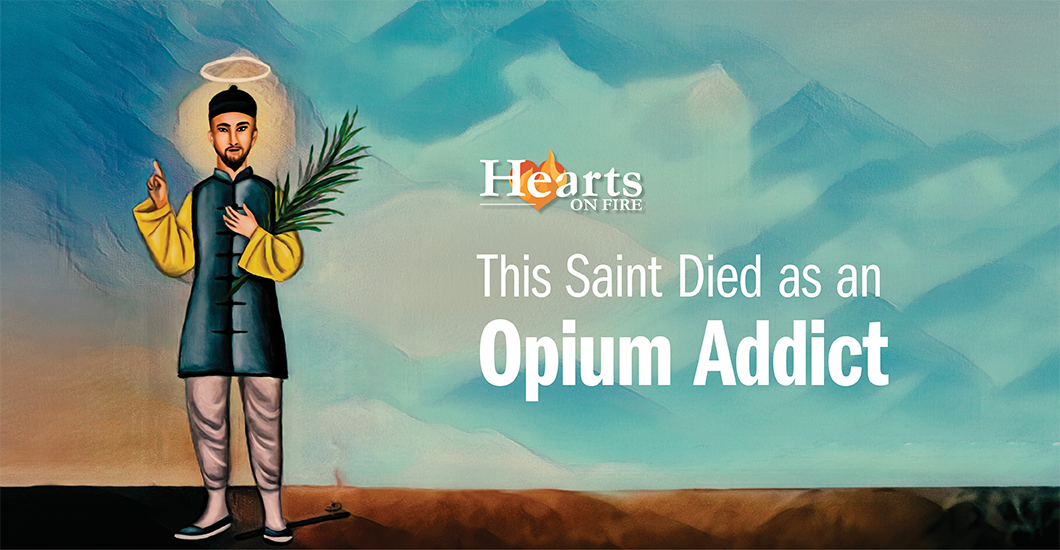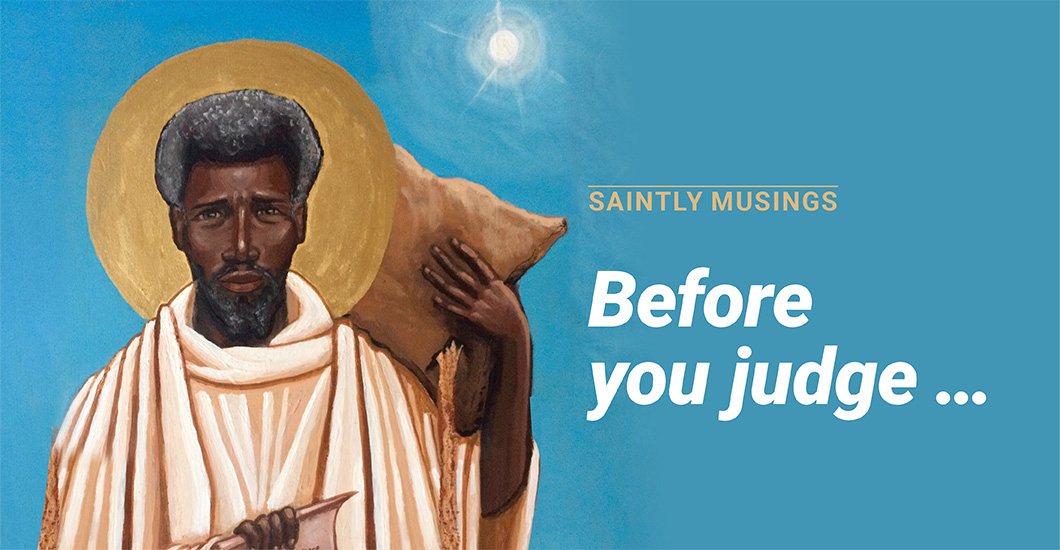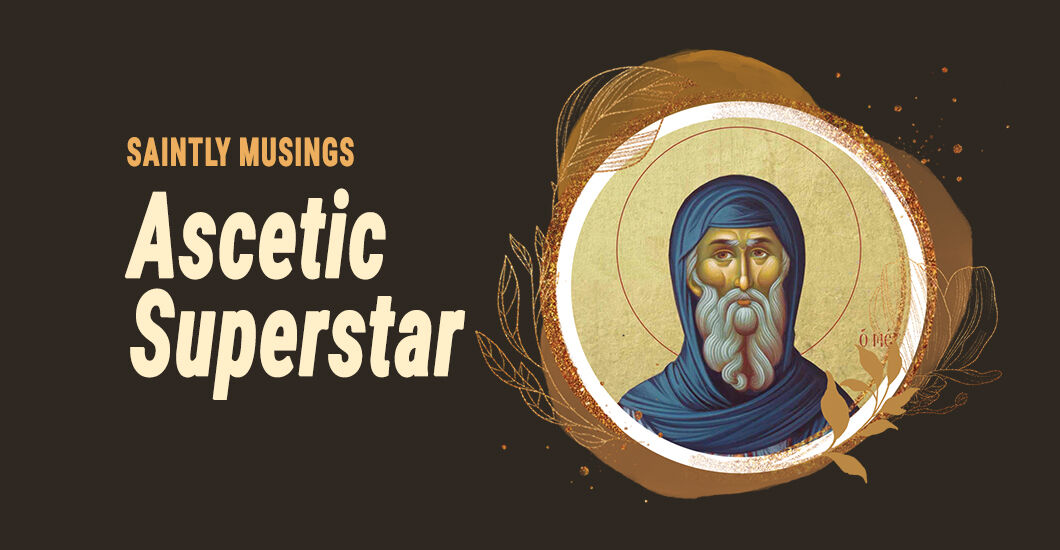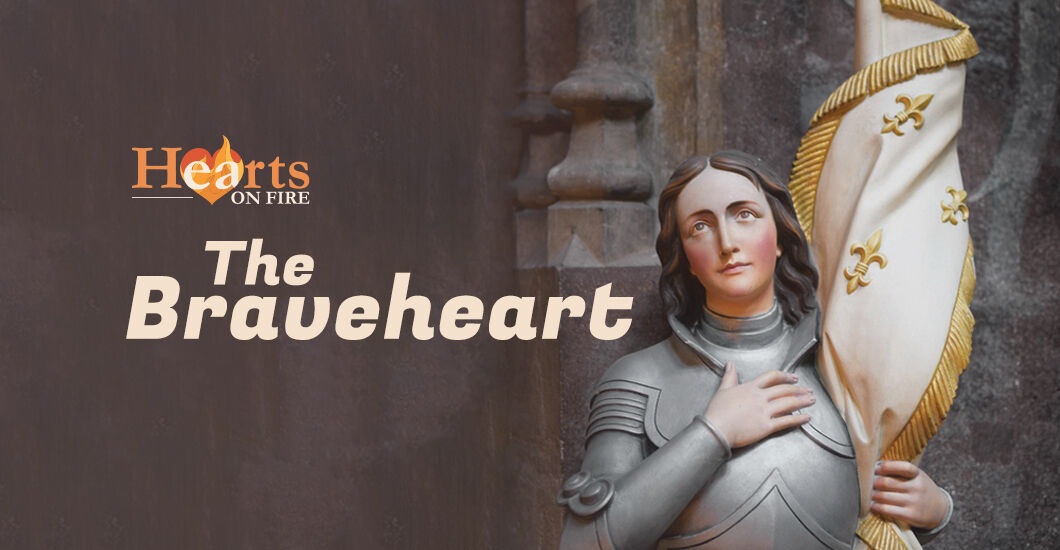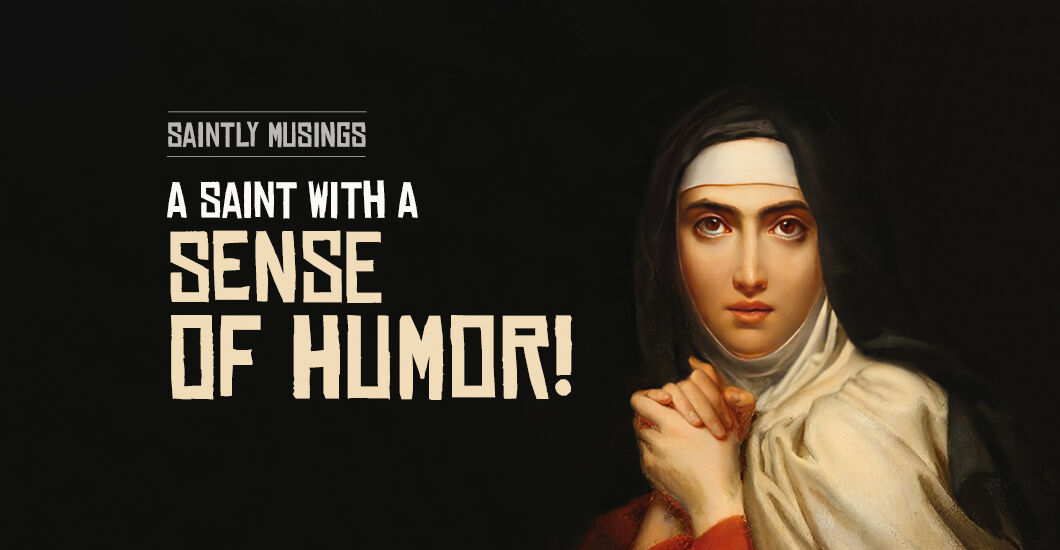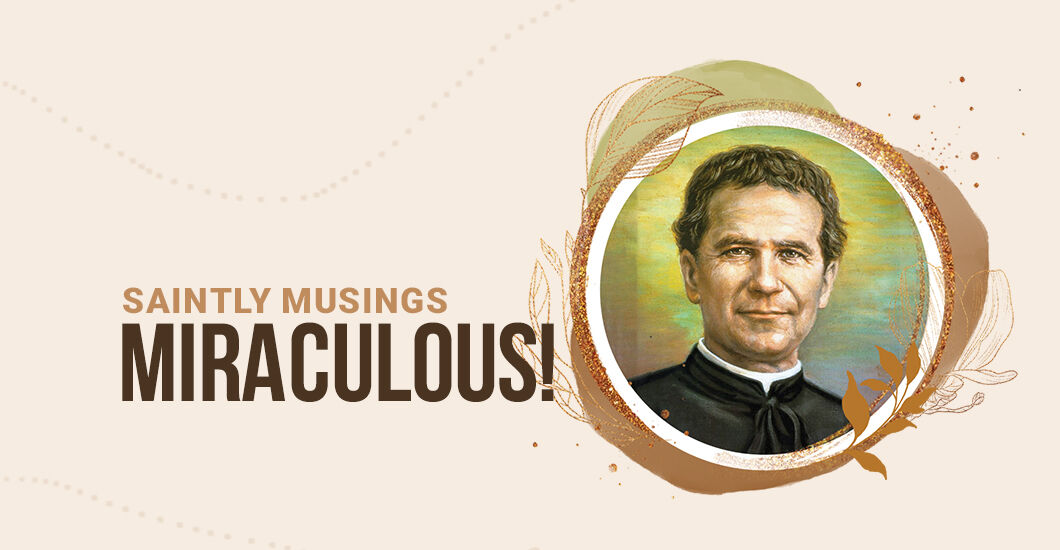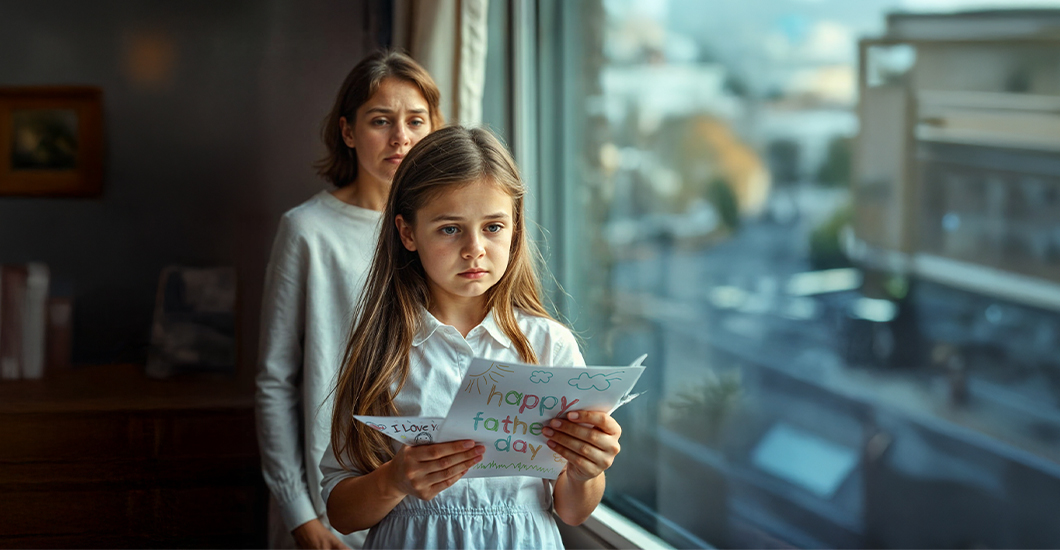Being Grateful is not a Small Matter
Very early one morning, I was in pain. I collected Marija my translator in Mostar and one look told her that I had been awake all night and was still suffering from the aftermath of a high-speed rear ending the previous year. I felt burdened and cranky about the work overload scheduled for the day—the meeting with the obstinate builder who loved to take shortcuts with the construction work and, therefore, every detail had to be painstakingly scrutinized.
His loud voice overshadowed Marija’s in the swanky office and I struggled to hear her translation as to why he was looking for another 25,000 pounds for the one million current projects. Bosnia-Herzegovina had brought out a toughness in me which I thought I was incapable of.
As I sat at the table I was furiously defending Rebuild for Bosnia donors’ money, more stubborn than the builder, telling him the amount was not specified in
the contract and he had to take responsibility for his mistake. He continued to argue and pushed me as far as he could. I refused to give in, telling him the cost of his mistake was one house less for the homeless and that he could consider his mistake a contribution toward helping his fellow displaced Catholic people.
Cool-off Time
It was an exhausting start to the day and the heated exchange drained me of resources even further. I took a walk around the block, drew a deep breath and focused my thoughts on our next appointment in city hall. It was almost mid-day and after the morning in the city, I was ready to leave and have lunch somewhere more relaxing.
“Why don’t we call to see Mara?” Marija asked. She knew if anything were to cheer me up that day it would be a visit to our dear old friend, Mara, whose eyes would light upon seeing her unannounced visitors at the door.
We stopped at the local store and picked up some ham, cheese, eggs and cakes. Mara had been dispossessed of her two-story home, set in the idyllic alpine mountains on the outskirts of Konijc, cleansed of 10,000 of its 11,500 Catholic population during the 1992–1995 conflict. She was now living in her new home, once that Rebuild for Bosnia had built for her, and was happy in her peaceful surroundings.
The door opened and she saw Marija and me standing there. A radiant light filled her soft brown eyes as she raised them to heaven, praising God for our visit. She sat down beside me, pushed her weary body as close as she could and slipped her arm through mine. “I wasn’t expecting you,” she said. “I told you I’d be back on my next visit,” I replied.
Magnificient Gift
A month earlier I had paid her a visit and tried to see her as often as possible since she had been diagnosed with bowel cancer and had a colostomy. That day I sensed a bad odour coming from her colostomy bag. After a little gentle probing, she explained that the hard plastic rim on the bag, which sits next to her skin, irritated her so much that she could not use the bag and she was substituting it with pieces of cloth. I was shocked to discover her predicament and promised I would be back with a supply of bags.
Soon after, I called my friend Delores and she donated 200 of the finest and best colostomy bags on the market. I brought them with me on the next visit. “I’ve got something for you, Mara,” I said, reaching for a large bag at my side. Opening a box, I took one bag out and placed it in the palm of her hand. “What do you think of that?” I asked. She ran her hand over the velvety exterior finish and replied “Luxurious.” Resting both hands in her lap, she raised her head and turned her gaze to the Lord. Her lips moved in prayer thanking God for the magnificent gift. I looked at Marija and could see tears in her eyes. It was a deeply humbling moment. “I’m sorry, Lord, for all my grumblings today. Here is a beautiful soul who thanks you for colostomy bags while most other people would be angry with you because of their sickness and would be unable to see the gift.”
An Eye Opener
I apologised to God for my lack of gratitude and recognized the times I had failed to see the gift because an expectation of more had blinded me. An excess of material commodities in life and a surplus lifestyle had blurred my vision and muted the words “Thank you, Jesus, for all you have provided for me in this life.”
I felt ashamed when I contemplated how miserable I had been in my thanksgiving to Jesus. I had hurt him so many times by my lack of heartfelt gratitude. “Do you have a right to more?” I asked myself. I realized I had entertained the spirit of disappointment far too many times and that changes to my thinking were needed. I made a promise to the Lord that no matter what I prayed for, from then on, and regardless of what I received, I would never be disappointed.
I thank God for that precious moment with Mara when my eyes were opened to my gloom toward the Lord. My life was filled with an abundance of good things and I lacked nothing.
Thank you Lord
Working with the poor, displaced and disabled people of Bosnia-Herzegovina greatly enriched my spiritual life and brought me closer to allowing God my father to provide for my needs. In moments of pain, sorrow, anxiety, humiliation and the many negative emotions I experience at times, I make a point of praising Jesus. When I wake at night and I feel anxious, I pray the rosary and praise and thank the Lord. It is a peaceful way to live, bringing joy and contentment, and I enjoy the beautiful peace in my heart to which Our Lady constantly refers.
May the Lord bless you as you read this article and allow you to see the greatness of God through His goodness to you. May your heart sing a song of thanksgiving all day long.
My dear Jesus, I am truly sorry for hurting you with my ungratefulness for the countless graces and blessings you have bestowed throughout my life. I deeply regret the times I failed to express my heartfelt gratitude. You are my Lord and I love you. In you and through you, I have my life. Praise be Jesus.
Patricia Keane is the author of the critically acclaimed book “Journey of Ten Thousand Smiles” and is an inspirational speaker and witness to her inner healing in Medjugorje. She hosts a weekly programme, Health and Faith Matters on Radio Maria and blogs at www.journeyoftenthousandsmiles.org. Patricia received two International Awards for her humanitarian work with the ethnically displaced families of Bosnia-Herzegovina through her tireless work with the charity Rebuild for Bosnia.
Related Articles
The Mexican Revolution which began in the early 1920s, led to the persecution of the Catholic community in that country. Pedro de Jesus Maldonado-Lucero was a seminarian at that time. Once he became a priest, despite the risk, he stood with his people. He tended to his flock during a terrible epidemic, founded new apostolic groups, reestablished associations, and ignited Eucharistic piety among his parishioners. Upon discovering his pastoral activities, the government deported him, but he managed to return and continue serving his flock, in hiding. One day, after hearing the confessions of the faithful, a gang of armed men busted his hiding place. Father Maldonado managed to grab a reliquary with Consecrated Hosts as they forced him out. The men forced him to walk barefoot throughout the town, as a crowd of the faithful followed him. The city mayor grabbed Father Maldonado's hair and dragged him toward the city hall. He was knocked to the ground, resulting in a skull fracture that popped out his left eye. He had managed to keep his grip on the pyx until this time, but now it fell out of his hands. One of the thugs took some Holy Hosts, and as he forcefully stuffed the hosts inside the priest’s mouth, he shouted: “Eat this and see if He can save you now.” Little did the soldier know that just the night before, during the Holy Hour, Father Maldonado had prayed that he would happily give his life for an end to the persecution ‘if only he would be allowed to take Communion before his death.’ The thugs left him for dead in a pool of his own blood. Some local women found him still breathing and rushed him to a nearby hospital. Father Pedro Maldonado was born into eternal life the next day, on the 19th anniversary of his priestly ordination. Pope John Paul II canonized this Mexican priest in 2000.
By: Shalom Tidings
MoreRani Maria Vattalil was born on 29 January 1954 to Eleeswa and Paily Vattalil in a small village called Pulluvazhy, in Kerala, India. From a young age, she was brought up in the Christian faith, having love for the poor. She attended daily Mass and led family prayers. During the final year of high school, Rani felt the Lord calling her to consecrated life and entered the Franciscan Clarist Congregation in 1972. It was Rani Maria’s ardent desire to do missionary work in North India and serve the poor, even if it cost her life. She was sent to Madhya Pradesh (a central Indian state) and served several mission areas there. Sister Rani Maria was given the responsibility of coordinating the social apostolate of the local diocese. She organized various educational programs for children and young people and worked relentlessly to empower the indigenous people. She understood how the poor, illiterate farmers were exploited and taken advantage of by their landlords. So, she educated them on their rights, helped them fight for justice, and spoke for those who were unjustly imprisoned. All this infuriated the upperclass landlords, who threatened her with dire consequences if she continued supporting the cause of the poor. But Rani Maria feared nothing and did not back down from her mission to 'love her neighbor.' A devious plan was then hatched by those who hated her. On 25th February 1995, while traveling by bus, she was mercilessly stabbed 54 times by Samundhar Singh—a man hired by the landlords. She breathed her last, repeating the Holy name of Jesus. Rani Maria worked her entire life to fight for the dignity and rights of her fellow men and bore witness to the Gospel through her social activities. Sister Rani Maria’s family, following the valiant example of their daughter, forgave her murderer wholeheartedly, even inviting him to their home! This act of mercy touched him deeply; he repented of his heinous crime and became a changed man. Sister Rani Maria was beatified by Pope Francis on 4th November 2017.
By: Shalom Tidings
MoreMartin de Porres was born in 16th-century Peru; he grew up facing the stigmas of both his mixed race and illegitimacy. After a barber-medical apprenticeship in his young years, he joined the Dominicans as a ‘lay helper’ and continued his barber work in the monastery. One day, Brother Francis Velasco Carabantes approached Martin, desiring to talk to this man whom people were already starting to believe was saintly. Martin was busy with his barber work; he absent-mindedly grabbed this novice and placed him in the barber’s chair. Brother Francis had no inclination to have his head shaved; he disliked the hairstyle that the Dominicans used. Before he could resist, Martin had finished his job, and Brother Francis was angry beyond expression. He started to shout, calling Martin all sorts of curse words. Martin was lost in prayer, and by the time he noticed that this novice was shouting, one of the rectors had seen the commotion and was scolding Brother Francis, who was severely punished and sent away. Martin, once he came to realize what had happened, went to the rector with all possible excuses. He begged forgiveness for this person who had verbally abused him, trying even to explain away the curse words used. Finally, he told the rector: “Everyone knows what a sinner I am.” The rector, who was aware of Martin’s saintly life, gave in to his request and forgave Brother Francis. Not satisfied with this, Brother Martin even sent fresh fruit, which was a rare delicacy in the monastery, to Brother Francis. How many times have we rejoiced in the ‘just’ punishments that our transgressors received? Let us pray to Saint Martin for the virtue of humility, to forgive and show the other cheek, as Jesus taught us to do.
By: Shalom Tidings
MoreOn a scorching afternoon on the streets of Calcutta, I met a boy… Prayer is an undeniable, central, and key part of every Christian’s life. However, Jesus emphasized two more things which clearly went hand in hand with prayer—fasting and almsgiving (Matthew 6:1-21). During the seasons of Lent and Advent, we are specifically called to commit more time and effort to all three ascetic practices. ‘More’ is the important word. Whatever season we are in, radical self-denial and giving are a continuous call for each baptized believer. Around eight years ago, God literally made me stop and think about it. Unexpected Meeting In 2015, I had the great privilege and blessing of fulfilling a lifelong dream to be with and serve some of the most in-need brothers and sisters worldwide in Calcutta, India, where the poor are described not only as poor but the ‘poorest of the poor.’ From the moment I landed, it was as though electricity was running through my veins. I felt such immense gratitude and love in my heart to be given this amazing opportunity to serve God with Saint Mother Teresa’s religious order, the Missionaries of Charity. The days were long but absolutely action-packed and grace-filled. Whilst I was there, I did not intend to waste a moment. After a 5 AM start to each day with an hour of prayer, followed by Holy Mass and breakfast, we set off to serve at a home for the sick, destitute, and dying adults. During the break at lunchtime, after a light meal, many of the religious brothers I was staying with took a siesta to recharge their batteries, to be ready to go again in the afternoon and on into the evening. One day, instead of having a rest in the house, I decided to go for a walk to find a local internet café, to contact my family by email. As I turned one of the corners, I encountered a young boy aged around seven or eight years old. His face expressed a mixture of frustration, anger, sadness, hurt, and tiredness. Life had already seemed to have begun to take its toll on him. He was carrying over his shoulder the biggest transparent, heavy-duty plastic bag that I had seen in my life. It contained plastic bottles and other plastic items, and it was full. My heart broke within me as we stood silently examining one another. My thoughts then went to what I could give this young boy. My heart sank, as I reached for my pocket, realizing that I only had a small amount of change with me to use for the internet. It added up to less than one pound in English money. As I gave it to him, looking him in the eye, his whole being seemed to change. He was so lifted and grateful, as his beautiful smile lit up his beautiful face. We shook hands, and he walked on. As I remained standing in that back street of Calcutta, I stood in awe as I knew that the Almighty God had just personally taught me such a powerful life-changing lesson through this encounter. Reaping Blessings I felt God had beautifully taught me in that moment that it is not the actual gift that is important but the disposition, intention, and love from the heart with which a gift is given. Saint Mother Teresa beautifully summed this up saying, “We cannot all do great things, but we can do small things with great love.” Indeed, Saint Paul said, if we give away all we have “but have not love,” we gain nothing (1 Corinthians 13:3). Jesus describes the beauty of giving, that when we “give… it will be given to you; good measure, pressed down, shaken together, running over, will be put into your lap. For the measure you give will be the measure you get back.” (Luke 6:38). Saint Paul also reminds us that “Whatever a man sows, that he will also reap” (Gal 6:7). We do not give in order to receive, but God in His infinite wisdom and goodness blesses us personally in this life and also in the next when we step out in love (John 4:34-38). As Jesus taught us, “it is more blessed to give than to receive” (Acts 20:35).
By: Sean Booth
MoreThe Chinese Boxer Rebellion in the 1900s killed nearly 32,000 Chinese Christians and 200 Western Missionaries. Among these devoted Christians who gave their life for their faith, Saint Mark Ji Tianxiang stands out because, at the time of his death, he was an opium addict who had not received the Sacraments for 30 long years. Ji was raised in a devout Christian family, and he was a respected and charitable doctor in his community. Fate be blamed, the opium he took to abate a disturbing stomach ailment took hold over him, and he was addicted to it in no time. Though he went to frequent Confession, Ji found himself in the grips of a powerful addiction that refused to succumb to any means of resistance. His parish priest and confessor eventually told him that he could not continue to repeat the same sin in Confession anymore. Confession requires a conscious resolve to repent and sin no more, and this repeated sin, in the 19th century, was not understood as an illness. He was henceforth restricted from receiving the Sacraments, but he continued visiting the Church and stayed true to the Lord’s ways. He remained sincere to his faith because He believed in a Merciful Father. Many assumed that he would be the first to deny the Lord when faced with the threat of persecution. But along with his son, grandchildren, and daughters-in-law, he persevered till the very end. In fact, Ji provided spiritual consolation to his fellow Christians as they were imprisoned and awaiting execution. Stories record that as they were dragged to prison, his grandson, shaking with fear, asked him, “Grandpa, where are we going?” He calmly and jubilantly answered: “We’re going home.” He went to his death, singing the Litany of the Blessed Virgin Mary. Pope John Paul II canonized him in the year 2000.
By: Shalom Tidings
MoreEver heard of a robber who turned into a Saint? Moses the Black was a leader of a band of thieves who attacked, robbed, and murdered travelers in the Egyptian desert. The very mention of his name spread terror in people’s hearts. On one occasion, Moses had to hide in a monastery and was so amazed at the way he was treated by the Monks that he converted and became a monk! But the story doesn’t end there. Once, four of the robbers of his former band descended upon the cell of Moses. He had lost none of his great physical strength, so he tied them all up. Throwing them over his shoulder, he brought them to the monastery, where he asked the Elders what to do with them. The Elders ordered that they be set free. The robbers, learning that they had chanced upon their former ringleader and that he had dealt kindly with them, followed his example: they repented and became monks. Later, when the rest of the band of robbers heard about the repentance of Moses, they also gave up their thievery and became fervent monks. After many years of monastic struggles, Moses was ordained deacon. For another fifteen years, he continued his monastic labors. About 75 disciples gathered around the saintly Elder, who had been granted the gifts of wisdom, foresight, and power over demons by the Lord. Once, a certain brother committed an offense in Scete, the camp of the monks. When a congregation was assembled to decide on this matter, they sent for Abba Moses, but he refused to come. Then they sent the priest of the church to him, imploring, “Come, for all the people are expecting you,” and finally, he responded to their pleas. Taking a basket with a hole in it, he filled it with sand and carried it upon his shoulders. Those who went out to meet him asked, “What does this mean, O Father?” And he replied, “The sands are my sins, which are running down behind me, and I cannot see them. Yet, I have come here today to judge shortcomings that are not mine.” When they heard this, they set that brother free and said nothing further to him.
By: Shalom Tidings
MoreAt the age of 20, Anthony lost his parents and was left with a large inheritance and the responsibility of caring for his sister. About the same time, Anthony happened to hear a reading from the Gospel of Matthew, where Jesus tells a rich young man, "If you want to be perfect, go and sell everything you have and give the money to the poor." Anthony believed he was that rich young man. Shortly after, he gave away most of his property, sold almost everything else, and kept only what he needed to care for himself and his sister. But that’s not exactly what the Lord had commanded! Not long afterward, Anthony was at Mass once again and heard the Gospel passage, “Do not worry about tomorrow; tomorrow will take care of itself” (Matthew 6:34). Again, he knew Jesus was speaking directly to him, so he gave away even the little he had saved, entrusted his sister to the care of some holy women, and entered the desert to live a life of poverty, solitude, prayer, and mortification. In that harsh desert landscape, the devil attacked him in countless ways saying “Think about all the good you could have done with that money you gave away!” Firm in prayer and mortification, Anthony fought off the devil and his manifestations. Many were attracted to his wisdom, and these he encouraged to seek self-denial and the hermetic life. No wonder after his death he became Saint Anthony the Great or Saint Anthony of the Desert, the father of Christian Monasticism. Once a brother renounced the world and gave his goods to the poor, but he kept back a little for his personal expenses. He went to see Abba Antony. When he told him this, the old man said to him, "If you want to be a monk, go into the village, buy some meat, cover your naked body with it and come here like that." The brother did so, and the dogs and birds tore at his flesh. When he came back the old man asked him whether he had followed his advice. He showed him his wounded body, and Saint Antony said, "Those who renounce the world but want to keep something for themselves are torn in this way by the demons who make war on them."
By: Shalom Tidings
MoreFew Saints of the Catholic Church have captured the popular imagination like Joan of Arc. Her story is depicted in paintings, sculptures, and numerous films. Born into a peasant family in 1412, Joan grew up illiterate, but acquired a profound love for the Church and a deep faith in God from her mother. Because she loved prayer and the sacraments, her neighbors said, “She was so good that all the village loved her.” She cared for the sick and homeless, often even giving them her own bed. By the age of thirteen, Joan began to hear the voices of Michael the Archangel, Saint Margaret of Antioch, and Saint Catherine of Alexandria. They told her she was to liberate France and ensure the French heir to the throne was installed as France’s rightful king. She won his trust by telling him details of his past only someone with divine knowledge could know. At the time, France was dominated and ruled by England. Convinced that her “voices” came from God, Joan heroically and faithfully obeyed their instruction, despite obstacles and suffering. Prayer and contemplation remained primary in her life even as she led battles, during which she never raised the sword against an enemy Though two years earlier a commission had “declared her to be of irreproachable life, a good Christian, possessed of the virtues of humility, honesty and simplicity”, Joan was accused of witchcraft and heresy after the English captured her, receiving no support from the very King she put on the throne. At her trial, Joan manifested her deep faith and wisdom, and despite being wrongly condemned, she never lost her faith in God or the Church. When she was burned at the stake, she proclaimed the name of Jesus while holding a crucifix to her heart, causing an observer to say, “We have burned a saint.” Her death increased her fame and popularity. Twenty years later, a new trial declared her innocent of all her alleged crimes. After her reputation grew over the centuries to epic proportions, Joan was beatified in 1910 by Pope Pius X and canonized eleven years later by Pope Benedict XV. She is now the patron Saint of France and one of the Church’s most beloved Saints. Joan’s obedience to God ensured France kept the Catholic faith during the Protestant Reformation while England abandoned it. France remained a solid center of Catholicism from which it would spread to northern Europe.
By: Shalom Tidings
MoreThe river had swelled so high that water covered everything and all sense of where the road or footpath might be was purely a guess. With water everywhere, it seemed foolish to advance, especially in a carriage, for if anyone strayed ever so little off the road, they would perish without a doubt. As her companions panicked, Sister Teresa encouraged them, “As we are engaged in God’s work, how could we die in a better cause?” She then led the way on foot to the convent through the fierce storm. Suddenly she slipped down an embankment and fell squarely into the mud. Instead of complaining or cursing, the irrepressible nun, looked to the sky and quipped, “If this is how you treat your friends, no wonder you don’t have many!” The sixteenth-century Saint and Doctor of the Church, Teresa of Avila, didn’t take herself or this world too seriously and brushed off the little hardships of life with a sense of humor. Her ability to humbly recognize her own faults and need for grace was also tinged with her refreshing humor. In her autobiography, Teresa writes, “Having virtuous and God-fearing parents would have been enough for me to be good if I were not so wicked.” Saint Teresa was also mindful of false piety and once said, “From silly devotions and sour-faced saints, good Lord, deliver us!” A healthy and good sense of humor will keep our head straight and enable us to see the world’s true beauty. Did God say that we need to be “sour-faced” to be holy? So, if you want to become a saint, lighten up, share the joy of the Lord and laugh with your friends like Jesus did.
By: Shalom Tidings
MoreMaria Stardero, a 12-year-old girl, was led by her aunt into the church where dozens of boys were standing about or kneeling in prayer as they waited for Don Bosco to arrive for confessions. As she made her way to a pew, some of the boys noticed that the young girl’s eyes had no corneas and resembled white marbles. When Don Bosco arrived, he asked the girl about her condition. She had not been born blind, she told him, but because of eye disease she had completely lost her sight two years earlier. When he inquired about medical treatment, her aunt began to sob. They had tried everything, but doctors had only one thing to say: “It is incurable!” “Can you tell whether things are big or small?” Don Bosco asked the child. “I can’t see anything.” He led her to a window to see if she could perceive light, but she couldn’t. “Would you like to see?” Don Bosco asked. “Oh, yes! It’s the only thing I want,” said the girl, breaking down in tears. “Will you use your eyes for the good of your soul and not to offend God?” “I promise I will, with all my heart!” “Good,” said Don Bosco. “You will regain your sight.” After recourse to Mary, Help of Christians, Don Bosco recited the Hail Mary and blessed the girl. Then holding a medal of Mary Help of Christians before the girl’s eyes he asked, “For the glory of God and the Blessed Virgin, tell me what I’m holding in my hand.” “She can’t . . .” the elderly aunt began, but Don Bosco paid no heed. After a few seconds, the child shouted, “I see!” Immediately she described the medal in great detail. But when she stretched out her hand to receive it, it rolled into a dark corner. The aunt moved to retrieve it, but Don Bosco motioned her back. “Let her find it to see if the Blessed Virgin has thoroughly restored her sight,” he insisted. Immediately, the girl walked to the dark corner and bent down to retrieve the tiny object. As the many witnesses looked on, awed and profoundly moved, Maria, thanked Don Bosco profusely and with sobs of great joy. Entrust everything to Jesus in the Blessed Sacrament and to Mary, Help of Christians and you will see what miracles are! Saint John Bosco
By: Shalom Tidings
MoreLatest Articles
Loss brings with it the unavoidable pain of grief…But is it inescapable? Post-holiday letdowns are not unusual and can be made worse during times of personal loss. Looming large may be the expected or unexpected passing of a loved one or a loyal pet, separation, divorce, chronic illness, assault, home or job loss…Each bringing its own level of grief. In such times, we should do our best to realize the interplay between our body, mind, and spirit, no matter our age. It is important we nurture each of those domains with respect, as how well we pay attention to one impacts the other two. Adequate rest, a healthy diet, and spiritual nourishment can be a far-reaching base in helping us through challenging situations. As mortals, we do our best to manage grief. Hiding from grief just doesn’t work. Acknowledging it is the first step in learning to live with loss and constructively moving on with our lives. Its shadow, though, is long and sweeping. Mastery comes with time and acceptance, but mostly from faith. Sudden and senseless loss, such as suicide, can be even more challenging as the circumstances can provoke enduring guilt. A proper perspective takes determination, time (perhaps even counseling), and a consuming belief in an all-knowing, all-loving God. Grieving is natural and helps us adjust to new realities. However, acquiring a focus on ‘the now’ is important during a time of burdensome grief. So many of us live in the past or anxiously fret over what the future holds. For those of us who truly believe in God’s understanding and mercy, we can continue to find purpose in our lives no matter the circumstances. Faith equips us to trust in Divine providence and be open to finding paths to reconstruct our lives with purpose. Nothing’s Forever Clouds do not last forever, neither does sunshine. It may be helpful to take the time to sit down and make two lists. On the first list, identify all for which you are thankful for. On the second, state personally rewarding actions that you feel can be reached within the next six months. Review the list, prioritize the most important, and set a date by which each item will be completed. Items may include something as simple as going to an entertainment event or visiting a friend or relative across the country. Make plans and just do it. Whatever you choose to do should bring you to a more joyful place. You will then slowly begin to take active control of your life. Guilt is an all-too-common driver of human behavior; while natural, it shouldn’t stand in the way of you doing something good for yourself. Your joy can become contagious to those who care for you, which is no less a reward for you. If you have real faith in the Lord as your Shepherd, you will persevere. Is there hope for the pain of loss to be managed? Yes, there is. The end of something can be the beginning of something else. With faith, we are never alone. We are never abandoned. We are all children of God. We have the choice to accept faith in God and have hope in receiving His healing. It doesn’t happen overnight, but it can and does happen. When tragedy or loss becomes personal, faith can help you accept what is difficult. God’s hand is there; it only takes us a moment to reach out beyond ourselves and believe in His Divine Mercy.
By: John F. P. Cole
MoreIs someone getting on your nerves and driving you nuts? Ellen has some stainless steel lessons to offer. Where I live in the southwest desert of the United States, we have an average rainfall of 7 inches a year, so we are dependent on getting our water from a deep well. The well diggers had to drill down 600 feet into the earth to find water on our property. It is safe to drink, and we are very grateful to have this source, but it is very hard water full of minerals. As a result, it leaves calcified residue in all our pipes, sink fixtures, and shower heads. Whenever one boils water, a white, chalky film is left that coats the pot. If it doesn’t get scrubbed off, that coating gets added to with each subsequent boiling until there is a thick layer of calcified minerals that would take a chisel and a lot of hard work to get off. We’ve learned over the years to have only stainless steel or cast-iron cookware so that we can scrub hard to get the mineral build-up off. At each kitchen sink, there is a stainless-steel scrubber that we use for this purpose because, as one of the community members here says: “You can only clean stainless steel with stainless steel.” Sometimes when I’m doing the pots and pans, I think of the proverb that says: “As iron sharpens iron, and one person sharpens the wits of another.” (Proverbs 27:17) I think of how God uses difficult people in our lives to clean us up and polish our rough edges. A priest once said: “If you want to be a Saint, you should expect somebody hard to live with. You should expect that kind of suffering and make every effort to love.” Hard-Earned Lessons I recall someone that I had to work with for an extended time. He took a dislike to me and spoke badly about me behind my back. He was gruff and cranky and hard for me to love. And I must confess, I didn’t do a very good job of being charitable to him either. His behavior brought some of the ugliness and sin in my heart to the surface, and I grumbled and complained about him to some of my closest friends. After quite a while of this, I started to take the situation to prayer. I felt the Lord telling me that He had some lessons to teach me through this difficult relationship if I was open to hearing them. As I tried to listen to God over the subsequent weeks, I was surprised to realize that the Lord was using this person to work on me! I had thought all along that this guy was the problem and needed serious work by God. But the Lord was telling me in my prayer: “Stop focusing on his faults. I’ll deal with him. Let’s, you and I, work on some of your shortcomings.” It was very humbling, to say the least. “As iron sharpens iron, so one man sharpens another.” As I saw more clearly that the Lord was using this person to highlight some of my sinfulness so I could confess it and work on myself, it changed the way I interacted with the man. I slowly started to modify my behavior and my way of thinking, and looking back now, I can see that I became a better and kinder person because of that relationship. Think about a person that is hard for you to get along with now. Take it to prayer and ask the Lord for His perspective on it. He sees the whole situation and knows best what needs to happen. He will give you wisdom and show you the way forward. But you may just be surprised at the Lord’s answers.
By: Ellen Hogarty
MoreFor years, my mother kept me from experiencing my father’s love, but I found a road back to reconcile with both of them, and myself! No one wants to find out they have been lied to by someone they love and trust, but it happens. The first time this happened to me, I was a child growing up with my mother. I found a parcel of letters that I had written to my father spanning a considerable amount of time. They had never been sent. From the discarded bundle, I pulled a card I had made for him, which read ‘Happy Father’s Day, Dad, I love you,’ and felt a growing sense of anger and injustice rise above the confusion that touched me just moments after I found them. When I approached my mother about the unsent letters, she was unconcerned, casually stating that she had known all along that I would be disloyal to her, and the letters to my father were proof of her suspicions about me—I had called him ‘Dad’ which meant, in her mind at least, that I had betrayed her. The anguish I felt upon discovering the truth was unbearable, not for myself, but for my father. The pain he must have felt, knowing that I never responded to the letters he wrote to me...And yet, I wondered why–after not hearing from me after all this time–he continued to write to me, telling me of his adventures abroad, his daily life, interesting things he had seen, or people he’d met. I’ll never forget the guilt I felt, knowing that my love for him was never understood. I felt betrayed. Words that I had reserved just for my father were infiltrated by someone else. I felt robbed of the right to know my father, and for him to know me. Yet Another Lost-Love Story Some thirty years later, I’d discover another Father whom I had been kept from. After learning the truth about God and the Catholic Church, I felt that I had been robbed of a relationship with my Father in Heaven, which left me with a temporary feeling of loss and guilt, followed by an even larger sense of unworthiness of His love—that He should continue to seek me out despite my absence in the relationship. My life up to this point had prevented me from encountering and more importantly accepting God’s love and mercy. While I may have felt that I had been kept from knowing God, which in a way is true based on my upbringing, I now know that nothing has ever kept God from knowing me. The truth is, Our Father in Heaven wants all His children with Him, and He will stop at nothing to bring us home. All that is required from us is to surrender and give Him our yes. My personal ‘yes’ made me realize that when we sincerely know the love of God, we align our hearts with His Sacred Heart and then, we can only love with His love. This supernatural love helps us see the woundedness in the people who hurt us. His merciful love helps heal our deepest wounds, bringing them one by one to the surface with the utmost tenderness, respect, and care… His infinite love and mercy helped me to understand that forgiveness is not only about letting go of the hurt and anger, but also about releasing the burden of guilt and resentment that I had been carrying for so long. Through prayer and reflection, I began to see that just as my earthly father continued to reach out to me with love despite my silence, so too, my Heavenly Father continues to pursue me with unwavering love and compassion. Why? Because He loved us first, and He knows us in the most intimate way. Finding Forgiveness It was through His grace that I was able to forgive myself for the years of lost love with my father. This supernatural love also led me to forgive my mother for the pain she had caused. God's love showed me that I am worthy of forgiveness and redemption, regardless of past mistakes or hurts. And His love inspired in my heart that my mother too deserved the same forgiveness and redemption. His love transformed my pain into a source of compassion and empathy, allowing me to see the beauty and potential for healing in every broken situation. Through the healing power of God's love, I learned that forgiveness is not just a gift we give to others, but one that we give ourselves. It is a path to freedom and peace, a way to release the past and embrace the future with renewed faith and love. It is my prayer that we may all be inspired by the boundless love of our Heavenly Father, who offers us forgiveness, healing, and redemption in abundance. May we, in turn, extend that same love and forgiveness to ourselves and to all those around us, creating a world filled with grace, compassion, and reconciliation.
By: Fiona McKenna
MoreSuffering is not bitter anymore, it’s now way more sweeter… Back at the height of the pandemic, affected by COVID-19, I went into acute respiratory failure and was admitted to the hospital for four days. I was given medicines through my veins to help my lungs. The illness caused scarring in my lungs, so I went home with some prednisone and oxygen to help alleviate the inflammation. Prior to this, I was an active senior who enjoyed gardening, walking my dog, journaling, writing, reading, and spending time with my family and friends. I attended Mass and Adoration and prayed at Planned Parenthood. However, life took on a new challenge. I had a sinus headache for months, and no medicine could relieve the pain. I became easily fatigued and had to lay down several times a day. Often, I would start to do something around the house and would get completely depleted. I lost my sense of taste and even some of my hearing. At times, I was unable to drive because I would get confused and dizzy driving. The doctors determined that I was suffering from long-Covid, and that lasted for months. In addition, my mind and thinking became foggy. I was very forgetful—they called it brain fog. I couldn’t read or concentrate and was very anxious. I began to pray for relief and asked other people to pray for me as well. I tried to offer up my suffering for those who needed God’s mercy, but it was so difficult to do. A Wake-up Call Then, I had an inspirational thought which I am sure, was from the Holy Spirit. I had heard of Father Stu, a boxer-turned-priest who gave in to Inclusion Body Myositis (IBM) in the early years of a robust life, but not in vain. Raised without religion by alcoholic parents, Stewart Long grew up filled with rage. During his teenage years, he began street fighting every night. He soon took up boxing as a sport, until he was hit in the jaw that ended his boxing career. As an adult, he moved to California to try getting into the movies but without much success. A near-miss accident and his girlfriend’s conversion to Catholicism gave him a much-needed wake-up call. As he was being baptized, he had a distinct impression that he was going to be a priest. For a few years, he ignored the nudges of the Holy Spirit, but he eventually made the pivotal decision and entered the seminary. It was there that he was diagnosed with IBM, a progressive muscle deterioration disorder that is resistant to all therapies. Incurable, it slowly leads to organ collapse, swallowing and breathing difficulties, and inevitable death. Father Stu spent the last four years of his life in a long-term care facility, where his room 227 became a place where people came to seek spiritual direction and confessions, and even just to hang out with him to watch movies. There was always a line of people waiting to get in to see him. His Masses at the facility were always filled with people. Masses with him were incredible. Father Stu ministered to so many suffering souls and offered up all his suffering till the end of his life on June 9, 2014. Father Stu used to say: “The Cross is a call to trust, even when things are going horribly wrong.” So, asking for his intercession, I started to pray: “Father Stu, if anyone knows how to suffer well, it is you. Please show me how.” Within a day, Father Stu answered my prayer and showed me how to suffer well with Jesus. The peace of Christ filled my entire being with His strength and mercy. I still can’t quite explain it in words. My suffering and pain became lighter and easier. I began to pray my Rosary and Divine Mercy Chaplet, and I also started to do the Liturgy of the Hours which I had never done before. The peace of Christ filled me with so much joy and comfort. This peace lasted for almost a month, a most beautiful month filled with Divine Love amidst my suffering. Yes, I continued to have long-Covid symptoms, but the suffering became sweet. Even though I was unable to attend daily Mass and receive the Eucharist, I would make a spiritual communion every day. Jesus said: “I will never leave you or forsake you.” I couldn’t go to Jesus, but Jesus came to me daily. More Untold Stories I am so grateful for the intercession of Father Stu. He has truly shown me how to offer up my little and big sufferings for those in need of Jesus’ mercy and healing. This was, to me, a touching testimony that Father Stu’s mission, to help other suffering souls, continues today from his Heavenly home. This is just one of the many stories of healing that remain yet untold. Father Bart Tolleson who was ordained the same day as Father Stu has written an incredibly easy-to-read book about his brother priest and friend entitled That was Father Stu. The book shares how, in our sufferings, there is hope eternal. The legacy of Father Stu’s life even inspired Mark Wahlberg, a Hollywood actor and producer, to make a movie entitled Father Stu in April 2022. In his words: “Father Bart’s book picks up where Father Stu left off. We come to realize in God’s mercy that Father Stu is still watching out for us.” When suffering becomes unbearable, let’s not forget that we have Heavenly helpers ever ready to lend a hand. Watch Mark Wahlberg share his experience of making the movie Father Stu on Shalom World’s Beyond the Vision. (shalomworld.org/episode/father-stu)
By: Connie Beckman
More